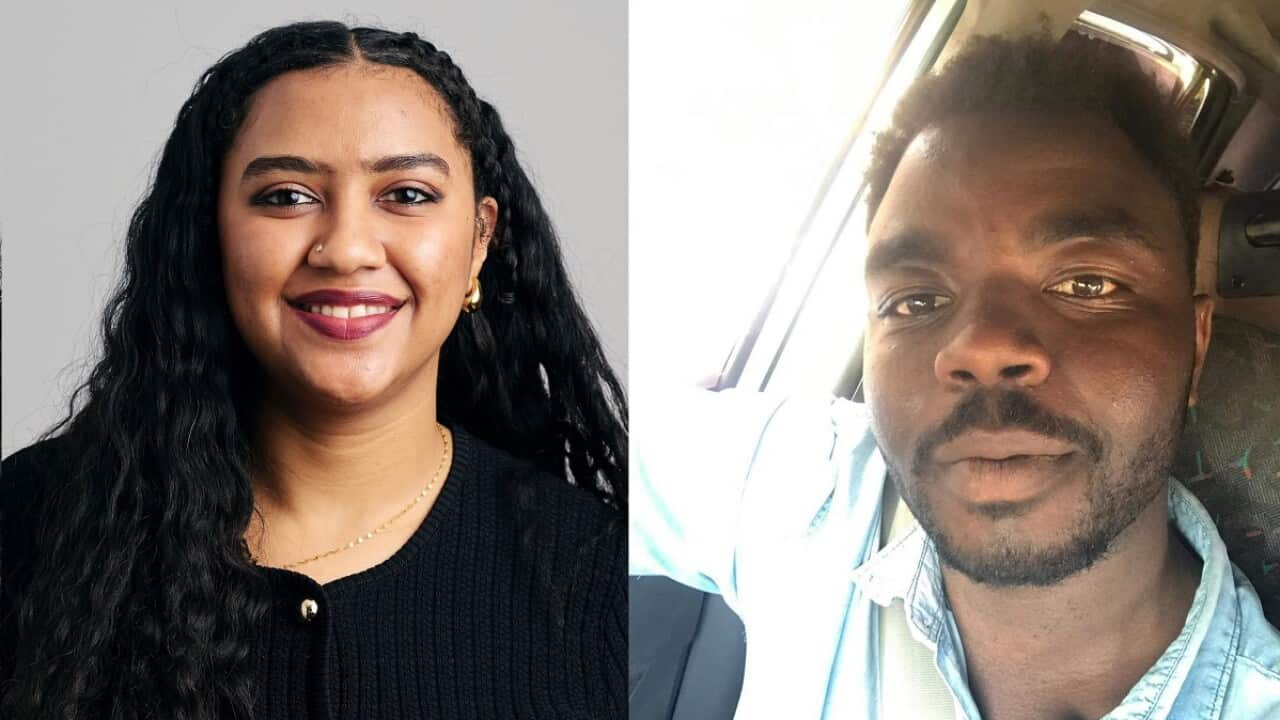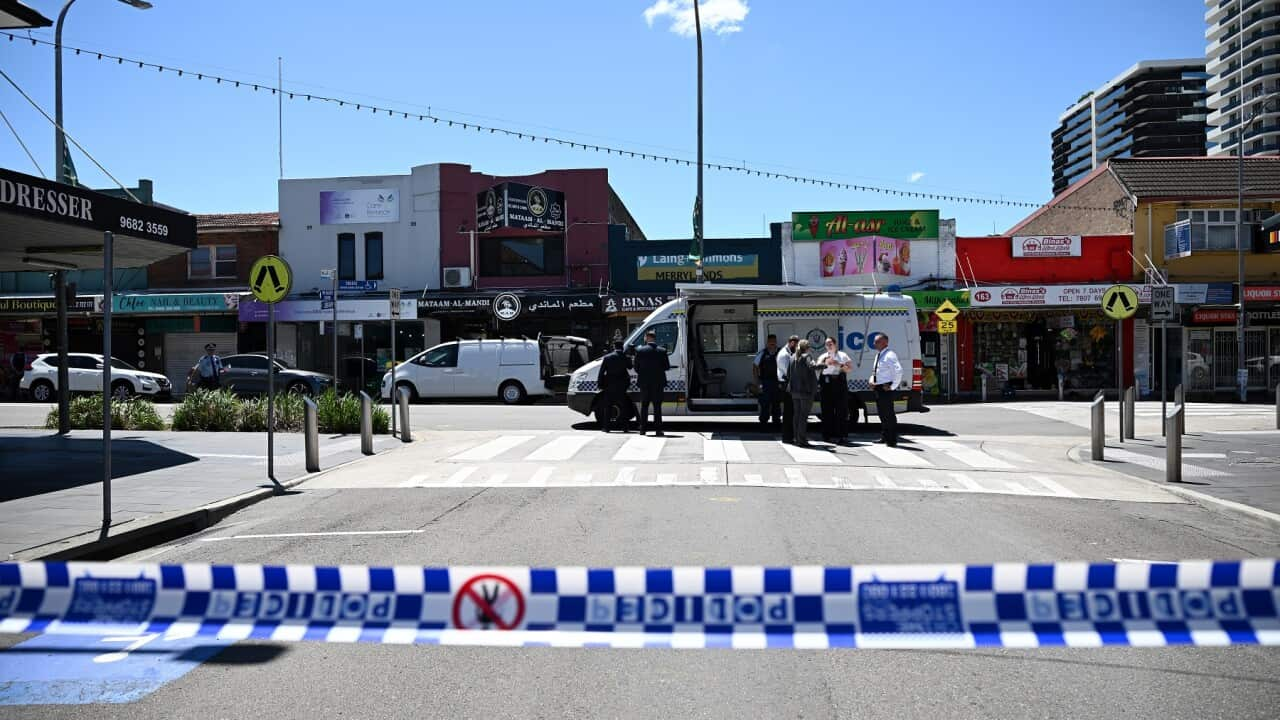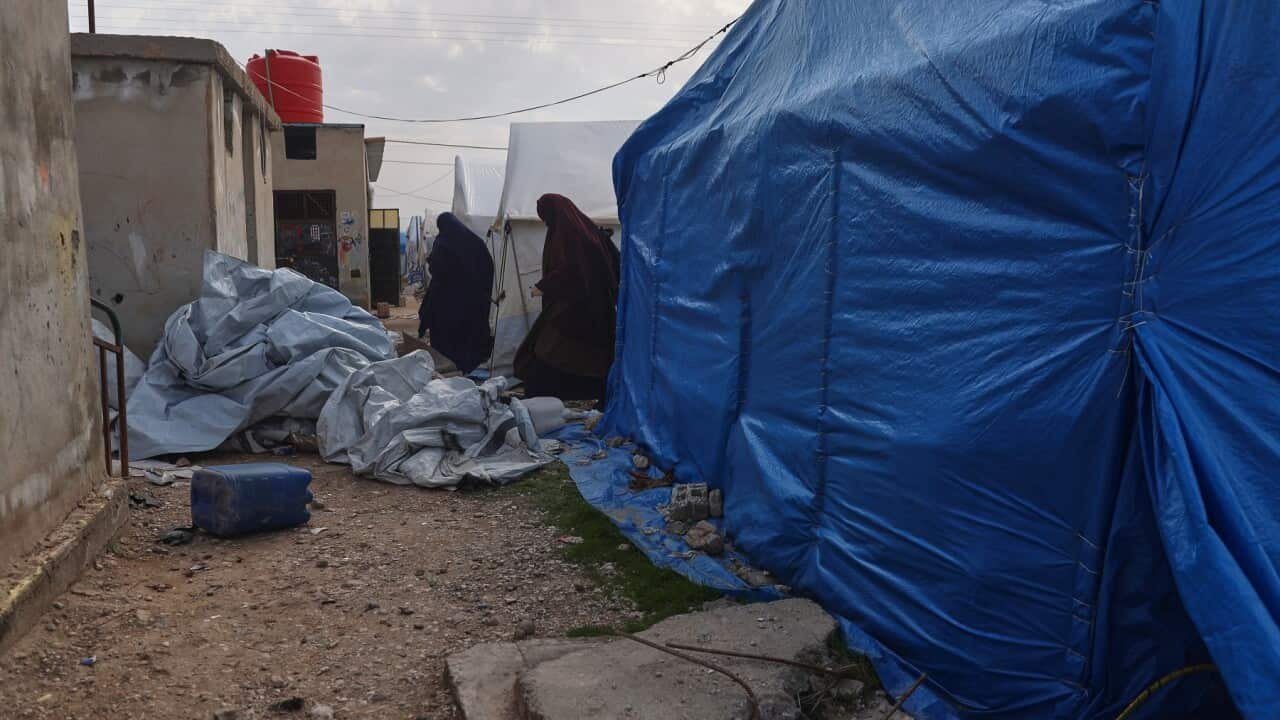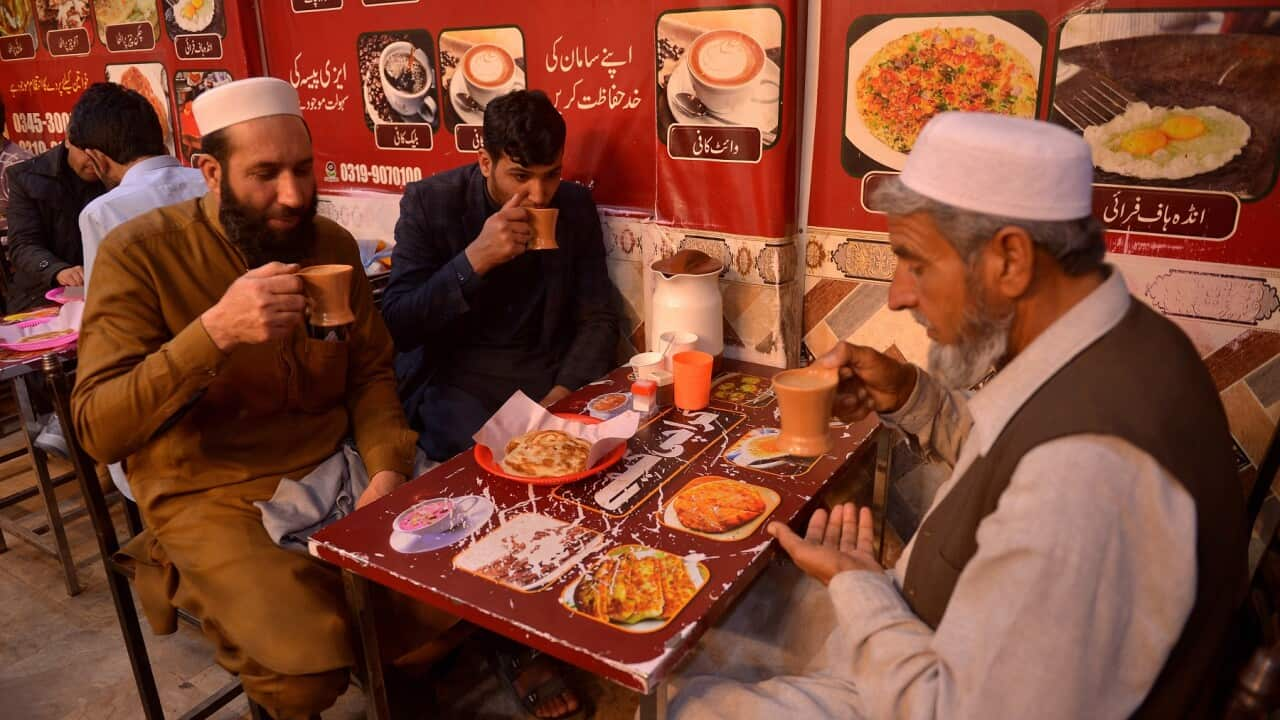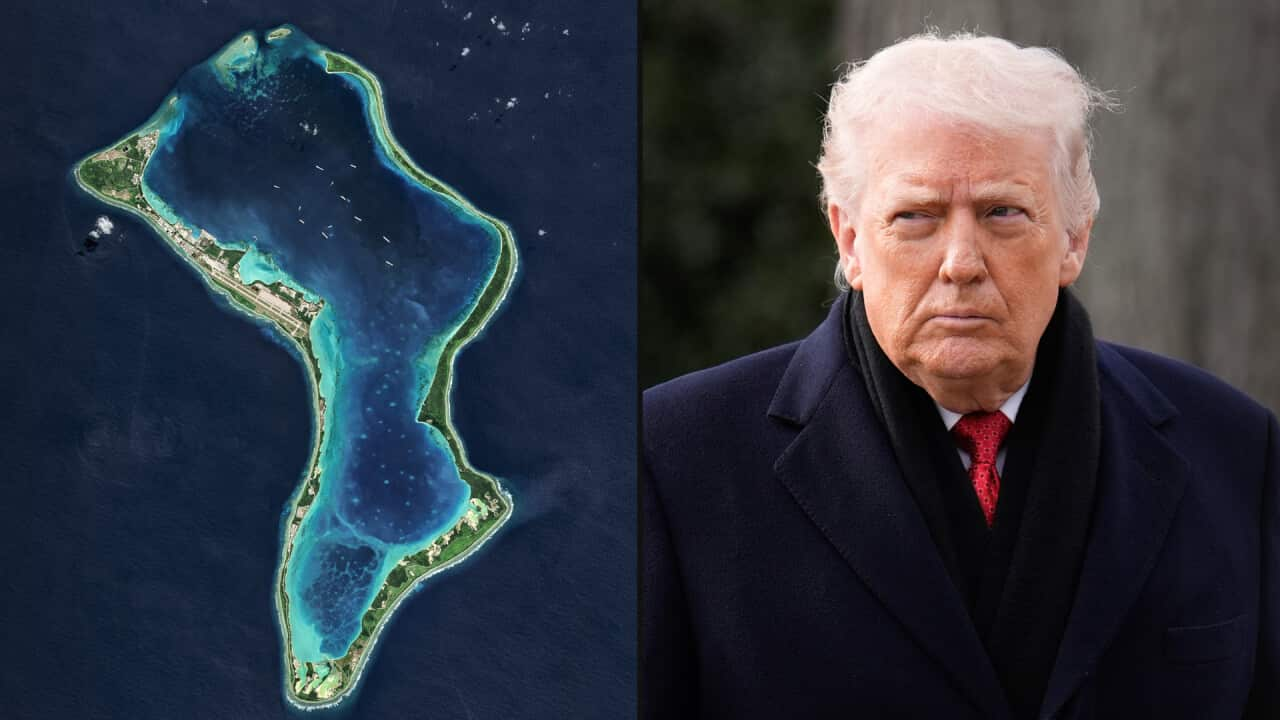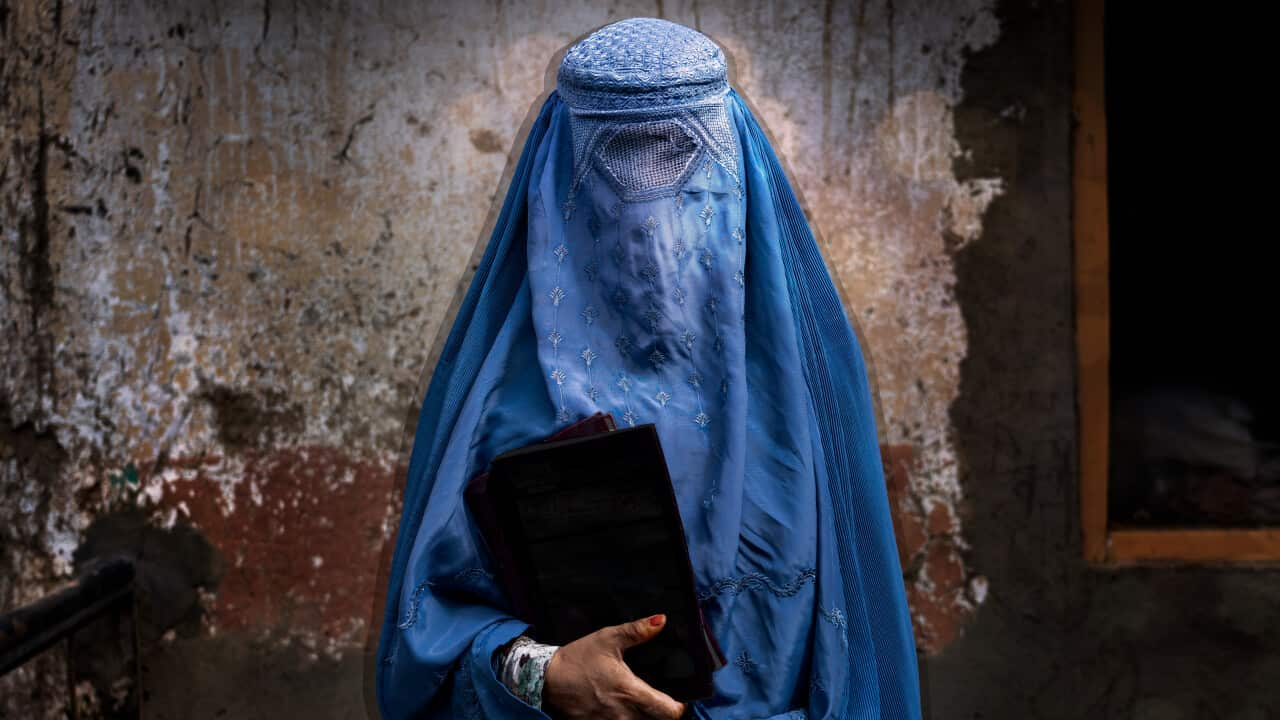WARNING: This story contains distressing content.
Listen to Australian and world news, and follow trending topics with SBS News Podcasts.
TRANSCRIPT:
ABDELRASOUL: "Personally I feel numb. Literally since the takeover. The first three days I've had one meal. I can't eat, can't think about anything else. My uncle, we don't know if he's dead or alive."
MOHAMMED: "It's been a complete blackout. I have not heard a thing from any family or friends that have been there. It's impacted my mental health extremely, not just me, a lot of Sudanese, it's impacted our mental health so much and we're not even there. We're just looking at the videos."
Algaly Abdelrasoul and Duha Mohammed are Sudanese-Australians paralysed by fears that their family members in Sudan may have been killed.
Their loved ones are trapped in the city of Al-Fasher, the capital of Sudan's western region of North Darfur.
After surviving an 18-month starvation siege of the city by paramilitary group the Rapid Support Forces, or RSF, they've now been plunged into danger after the militants stormed Al-Fasher one week ago and reportedly perpetrated widespread massacres of civilians.
Alkheir Ismail fled the city to the nearby town of Tawila, saying he managed to escape one of the killing fields.
“These people collected 300 of us, civilians, travellers, they brought us to a reservoir. The people on camels and motorbikes gathered us and killed us there. This was on Sunday. After that, there was a young man I studied with, in the university in Khartoum, he told them, 'don’t kill him.' After that they killed the rest of the people, the youths with me and my friends.”
Nathaniel Raymond is a war crimes investigator and Executive Director at the Yale Humanitarian Research Lab, which has been poring through satellite evidence of the alleged crimes in Al-Fasher.
He says the scale of the bloodshed is astounding.
"What I can tell you is we're not talking hundreds, we're not talking less than 10,000. We're now moving into the tens of thousands. Just to put this in perspective, we are at Rwanda-level killing, and the world at this moment should be laser-like focused on what is happening in Al-Fasher. The implications of what is occurring there may not be obvious (yet) but they will be."
The Sudanese government says at least 2,000 civilians were killed in the first 48 hours of the RSF takeover, with the World Health Organisation also reporting that 460 people, including patients and medical staff, were killed at the city's Saudi maternity hospital.
RSF has been fighting a protracted civil war with the Sudanese military since April 2023 but the seizure of Al-Fasher is a significant development.
With the city now falling to the paramilitary group, it now has complete control over the Darfur regions which encompass a third of the country.
Since the takeover, all phone reception and internet access has been shut down across the city, cutting them off from those living abroad.
Duha Mohammed escaped the war and lives in Canberra.
Her family has to search through videos of the massacres posted by militants bragging about the attacks on their home town.
"We've been just looking through the videos that are surfacing, trying to see if we'll find a familiar face among them, if we'll see a relative, a friend, a family member, if we'll be able to notice any of them. Every time we go through a video and I don't notice anybody that I know, I get a sense of relief that I'm like, 'oh, okay. So they weren't part of the people that were tortured', but then at the same time, I'm like, 'where are they?' That doesn't mean that they're okay."
Algaly Abdelrasoul's uncle, aunt and extended family remain trapped in Al-Fasher.
He says he's used to losing loved ones to the two-and-a-half year war but what's worse is the uncertainty.
"The idea of not knowing where they are, how they died is far worse because death - we've just accepted death. We've gotten used to family members dying because that is what has been happening since the war has started."
The United Nations estimates more than 60,000 people were able to flee the city, while some 150,000 remained trapped inside.
Fatima Abdulrahim left Al-Fasher with her grandchildren days before the city was captured, escaping to the nearby town of Tawila.
She says they managed to evade the worst of the RSF's violence but were robbed as they fled.
"They beat the boys and took everything we owned; they left us with nothing. After we arrived here, we learned that the girls in the group that came after us had been raped, but our girls escaped."
One of the humanitarian organisations supporting those displaced to Tawila is Plan International.
Hayley Cull, Deputy CEO of Plan International Australia, says the reports their teams are receiving are horrific.
"They're arriving speaking of dead bodies along the side of the road on the journey. They're speaking of people being killed and executed, civilians indiscriminately. People are arriving severely malnourished. We are hearing claims of sexual violence from many women and girls and children."
This eruption of violence follows the 18-month siege of Al-Fasher, during which Sudan Doctor's Network says around 14,000 people died due to bombing, famine and extra-judicial killings.
Back in August, SBS spoke to Mohamed Douda inside Al-Fasher, where he described the famine-conditions the civilians were enduring.
He regularly assisted our reporting on attacks on Al-Fasher and the Zamzam displacement camp.
During this call, he expressed several times that he believed he and many others would be killed if the Rapid Support Forces seized control of the city.
"If they control Al-Fasher, there will be killing and raping and kidnapping. Firstly, they will kill the leaders. They will catch me, put me in a prison and - if not kill me - you will need money to free me."
Mohamed Douda's friends and family have now confirmed that, when the RSF overran the city of Al-Fasher, he was executed.
The RSF were accused of genocide by the United States government and a number of human rights groups back in January, with these latest attacks raising international concern of a campaign of ethnic cleansing against Darfur's Indigenous African groups.
The Rapid Support Forces have denied all claims of genocide.
In response to this latest concern, the group's leader, Mohamed Hamdan Dagalo, has claimed any breach of international humanitarian law in Al-Fasher was an anomaly, and promised to punish any militants who broke the law.
"There are violations that took place in Al-Fasher. From here, I announce the formation of an investigation committee. The investigation committee shall immediately start to investigate and hold accountable any soldier or any officer who committed a crime or crossed the lines against any person. They will be immediately arrested and the result will be announced immediately and in public in front of everyone."
Abdullah Ali, Executive Member of the Sudanese Australian Advocacy Network, says these claims contradict all available evidence.
"These claims contradict consistent reports from humanitarian agencies and, of course, eyewitnesses. The violence in Al-Fasher mirrors RSF's actions elsewhere like in Al Jazeera before in Khartoum, in everywhere the RSF has ever been."
The RSF formed from a collection of Arab militias known as the Janjaweed which, in the early 2000s, helped the government crush a rebellion by mainly non-Arab groups in Darfur.
The UN estimates some 300,000 people were killed, and the leaders of that campaign are still wanted by the International Criminal Court for genocide and crimes against humanity.
Nathaniel Raymond, from the Yale Humanitarian Lab, says this campaign of violence is nothing new.
"What is this? Is this genocide? Yes, but it's not just genocide. This is the final battle for the completion of the Darfur genocide that began 20 years ago. The scale of killing, the hyper-violence where you have potential blood pools visible from space combined with the velocity of violence is unlike anything I've seen in my career. And I've worked Syria, I've worked Afghanistan. None of them comes close to the scale we're talking.”
Following the storming of Al-Fasher, the United States government says they are working with the Sudanese Army and the Rapid Support Forces to secure a humanitarian truce in Sudan.
US Senior Advisor for Arab and African Affairs, Massad Boulos, says the US is determined to see an end to the bloodshed.
"What happened in Al-Fasher in the last ten days is extremely sad. The atrocities that we've seen, of course, are totally unacceptable. And we're working on this for the last almost ten days to finalise the details of this humanitarian truce with both sides, hoping to finalise the details and hopefully have something positive to announce soon. But we can't say more than that because it's in the process of being negotiated."
But for now, Algaly Abdelrasoul and Duha Mohammed are forced to sit and wait through sleepless nights for news of their family back home.
ABDELRASOUL: "It's heartbreaking, and it's very, very hard to cope. "
MOHAMMED: "The survivor's guilt has been, not just me, if I'm being honest, has been hitting every Sudanese person that I have known or associated with - even more now. You feel guilty at the fact that you survived, that you left, that you're safe, you have a house, you have food, you have money, you're no longer in immediate danger. It's been very hard to deal with that guilt."
